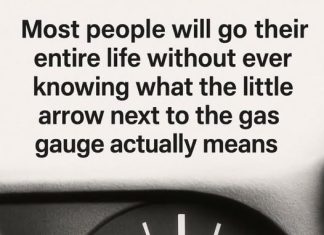A leading surgeon has raised concern about a surprising sensation that many men might dismiss yet it could signal a serious condition. This warning sign often arises in everyday life and therefore may go unnoticed or attributed to age or general fatigue.
Frequent Urination and Nighttime Urges
One of the key indicators is a change in urinary habits. Men may find themselves needing to pee more often than usual, especially during the night. They might also feel that their bladder hasn’t emptied fully, or experience a sudden urgent need to go. While these symptoms are commonly associated with benign enlarged prostate or other non-cancerous problems, the surgeon emphasises that when they persist or change in pattern, they merit attention.

Weak Stream and Difficulty Starting
Another telltale signal is a weak urine flow, or difficulty initiating urination. Often men may notice they must strain or wait before the stream begins, or it may start and stop. These changes occur because a growing prostate, or tumour within it, can press on the urethra (the tube through which urine passes). Although more frequently linked to benign prostate enlargement, they are also part of the symptom-profile for prostate cancer.
Unexpected Back or Hip Pain
The surgeon warns that pain in the lower back, hips or pelvis might not simply be a muscle ache or “getting older” issue. In some cases of more advanced prostate cancer, the disease has spread beyond the prostate and is causing discomfort in these areas. While this pain alone doesn’t mean cancer, when combined with other symptoms it raises red flags.
Erectile Dysfunction and Blood in Urine or Semen
Changes in sexual function—such as difficulty getting or keeping an erection—can also be part of the puzzle. Some men might notice blood either in the urine or semen. These are less common than the urinary-symptoms, but they are nonetheless important, particularly when they are new or unexplained.
Why This Matters
The difficulty with prostate cancer is that in its early stages it often causes no obvious symptoms. As one medical source explains, because the cancer usually starts in a part of the prostate that’s away from the urethra, it may grow without interfering with urination until later.
That’s why by the time more serious issues appear—like pain, changes in flow or blood—the cancer may no longer be localised. The surgeon’s warning aims to help men recognise that “small changes” might still be significant.
What Should You Do?
If you’re experiencing any of the above symptoms and they are new, changing or persistent, it’s worth speaking with your doctor. Even if the cause is a benign condition (such as benign prostatic hyperplasia), that still deserves evaluation. Checking helps identify the cause early rather than waiting until symptoms become severe.

Who’s at Higher Risk?
Some groups of men face greater risk and should be especially alert. Risk increases with age, especially beyond 50. A family history of prostate cancer also raises the likelihood, as does being of Black ethnicity in some studies. It’s valuable to know your personal risk and discuss screening and symptoms with your healthcare provider.
Final Thoughts
While many urinary or sexual symptoms in men are due to non-cancerous causes, the key message is: don’t assume they’re always harmless. Early detection of prostate cancer offers a better chance of effective treatment. If you notice changes—especially unfamiliar ones—don’t ignore them. Your doctor can help determine whether what you’re experiencing is benign or a signal to act further.

















